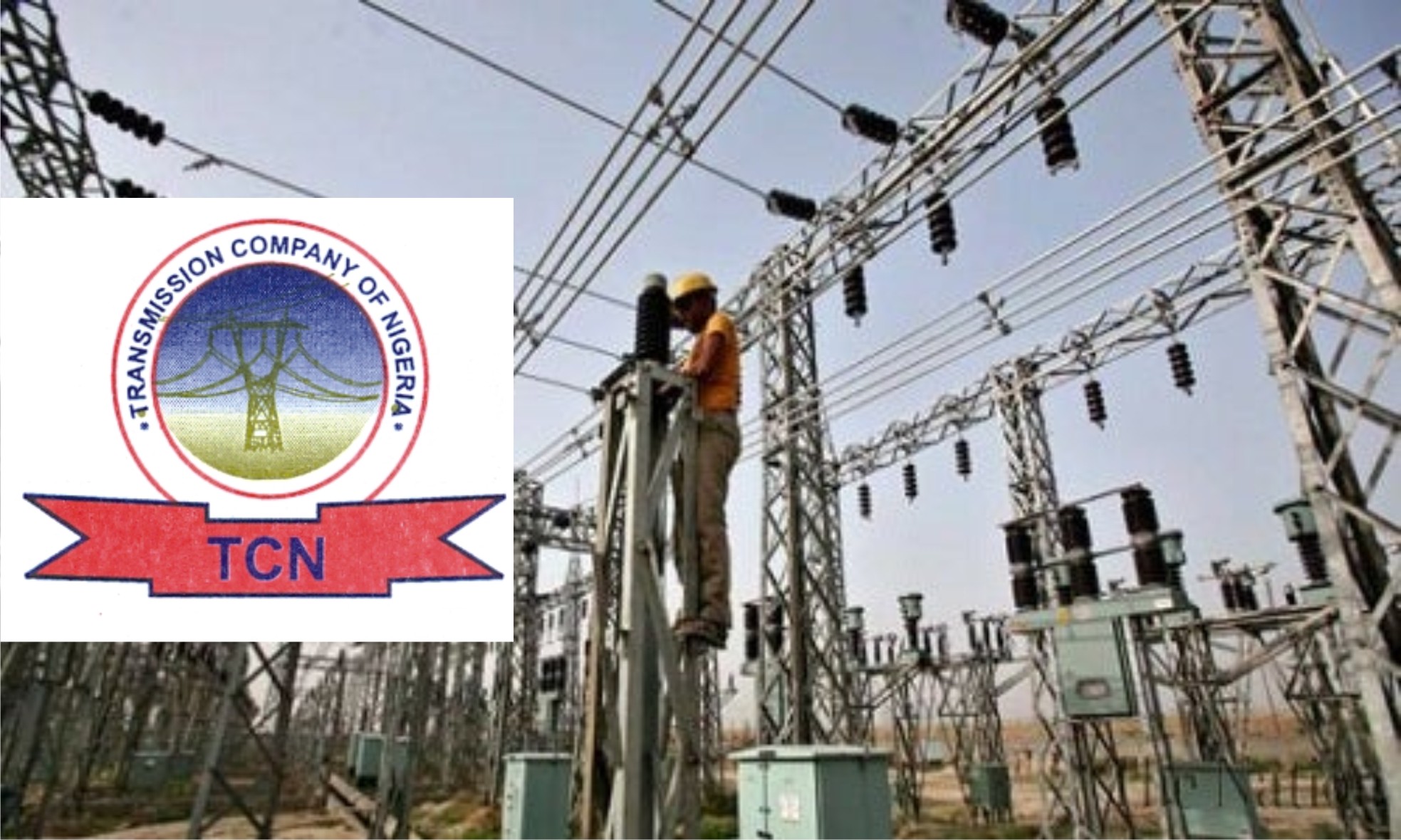Business
Nigeria Lost $46bn To Crude Oil Theft In 11 Years – Abbas
The Speaker, House of Representatives, Tajudeen Abbas, has revealed that Nigeria has suffered substantial losses due to crude oil theft amounting to $46 billion between 2009 and 2020.
Abbas disclosed this while inaugurating the ad-hoc committee to investigate crude oil theft and its attendant revenue losses.
According to him, Nigeria lost approximately $46 billion between 2009 and 2020 due to crude oil theft, stating that the staggering figure underscored the gravity of the issue.
He said, “NEITI reports also show that 619 million barrels of crude valued at $46 billion were stolen in the period 2009-2020. Nigeria has continually failed to meet its daily production quota as set by the Organisation of the Petroleum Exporting Countries (OPEC).
“While the average international price for Brent crude oil has hovered slightly above the set benchmark price since January, Nigeria’s daily oil production has performed poorly due to a number of reasons.
“It is common knowledge that investment in the oil and gas sector has declined in the past few years owing to global financing constraints and the overall response to energy transition considerations”.
Abbas warned that given the declining revenue from the oil and gas sector, should decisive action not be taken to address the issue of crude oil theft, Nigeria would face a deeper fiscal crisis.
The Speaker noted a decline in Nigeria’s oil production from 2.51 million barrels per day in 2005 to 1.77 million barrels per day in 2020, a situation which, he said, further exacerbates the economic challenges facing the nation.
“Recently, Nigeria’s OPEC quota was reduced from 1.742 million barrels per day to 1.38 million barrels per day. Yet, the country is still struggling to meet this quota as daily production output was 1.184 million barrels per day and 1.249 million barrels per day in May and June 2023 respectively.
“On average, current daily production output is a far cry from the budget assumption of 1.69 million per day. The implication is clearly manifest in the economic crisis that the country is facing”.
Abbas also noted that global factors, such as the ongoing COVID-19 pandemic recovery and the Russia-Ukraine conflict have cast a cloud of uncertainty over Nigeria’s oil and gas industry saying, lol “these external factors contribute to the challenges facing the sector”.
It would be noted that the menace of crude oil theft has had a detrimental effect on Nigeria’s oil production.
It is estimated that between 5 percent and 30 percent of crude oil production is lost to theft and this has significantly hindered the growth of the country’s oil sector
Continue Reading
Business
CBN Unveils NTNIA, NRNOA Accounts For Diaspora Nigerians’ Investment

Central Bank of Nigeria (CBN) has introduced two accounts: Non-Resident Nigerian Investment Account (NRNIA) and Non-Resident Nigerian Ordinary Account (NRNOA), to manage funds (both in foreign and local currencies) from Nigerians abroad.
In a circular signed by its Acting Director, Trade amd Exchange Department, W. J. Kanya, the apex bank said with the NRNOA, Non-Resident Nigerians (NRNs) will be able to remit their foreign earnings to Nigeria and manage funds in both foreign and local currencies.
“The NRNOA enables Non-Resident Nigerians (NRNs) to remit their foreign earnings to Nigeria and manage funds in both foreign and local currencies, while the (NRNIA) enables Non-Resident Nigerians (NRNs) to invest in assets in Nigeria in either foreign currency (FCY) or local currency (Naira)”, the statement read.
It continued rhat “Account holders may maintain both a foreign currency (FCY) account and/or a local currency (Naira) account to facilitate transactions and participate in diverse investment opportunities”.
CBN also explained that NRNs can use their NRNIA to participate in Nigeria’s Diaspora Bond and other debt instruments issued locally specifically targeted at the Nigerian diaspora or available to the investing public.
The account is also to serve as a conduit for NRNs to manage their funds directly in a safe and secure environment, and reduce the reliance on third parties in meeting local commitments and obligations.
According to the bank, effective January 1st 2025, eligible NRNs shall have the opportunity to own any of the non- resident Nigerian accounts, subject to meeting KYC requirements which will be made available in FAQs to be released soon.
The CBN added that “This policy is without prejudice to Memorandum 17 of the CBN Foreign Exchange Manual (2018)”.
Business
Diesel Price Hike: Manufacturers Opt For Gas

Manufacturers in Nigeria are gradually opting for natural gas as a solution to increasing diesel and petrol prices which have negatively impacted on production expenses.
Recall that following the removal of fuel subsidies by President Bola Tinubu in his inaugural address on May 29, 2023, the prices of diesel and petrol have skyrocketed, further worsening the cost-of-living crisis for people.
Recognising the potential of its vast natural gas reserves, which is over 200 trillion cubic feet, has initiated a Compressed Natural Gas (CNG) programme aimed at reducing transportation costs by nearly 50 per cent.
The initiative encourages the conversion of vehicles to CNG and aims to introduce CNG buses across major cities.
Additionally, the recent commencement of diesel sales by Dangote Refinery has led to a notable decrease in diesel prices, dropping from approximately N1,700 to N1,350 per litre. This reduction is expected to alleviate some financial pressure on manufacturers’ reliance on diesel for operations.
Industry leaders emphasise that transitioning to natural gas not only addresses immediate cost concerns, but also aligns with global sustainability goals.
The Manufacturers Association of Nigeria (MAN) has, therefore, urged businesses to adopt sustainable energy practices, as energy costs constitute 30-40 per cent of production expenses.
Commenting on the development, Managing Director of Tiget Business International Limited, Zheng Wei, said some Nigerian manufacturers are leveraging improved gas supply around Lagos to boost production despite recurring grid collapses.
Wei, who oversees one of the country’s largest footwear manufacturers, described this shift as vital to sustaining operations amid Nigeria’s power crisis.
Wei noted that while manufacturers face challenges like inflation, currency instability, and regulatory hurdles, power remains the most critical issue.
According to the MAN, energy costs make up nearly 40 per cent of manufacturers’ expenses, with limited and unstable grid supply disrupting production and reducing output.
To address this, Tiget partnered Clarke Energy to install a 6.6 megawatt Jenbacher gas power plant, sourcing gas from a supplier along the Lagos-Ibadan Expressway.
The project included assessments, engineering designs, and maintenance services, enabling Tiget to transition to cleaner, more efficient, and cost-effective energy.
Wei said, “The gas plant is producing cleaner electricity and saving us significant operational costs compared to diesel. It has addressed efficiency issues, making our operations more sustainable”.
On hos part, the Managing Director of Clarke Energy for sub-Saharan Africa, Yiannnis Tsantilas, emphasised that adopting resilient and cost-effective energy solutions is key to sustainable productivity for manufacturers.
He commended Tiget’s leadership for enhancing Nigeria’s economy by improving local market access to quality footwear, reducing unemployment, and increasing investment.
Tiget, incorporated in Nigeria in 2020 and based in Sagamu, imports polyvinyl chloride as a key raw material for its footwear products.
The company plans to expand its operations through backward integration and establish offices across Nigeria and Africa.
Wei expressed confidence in Nigeria’s potential as a regional economic hub, citing its young, talented population and vibrant local market.
He, however, acknowledged the challenges of high fuel costs on logistics and competitiveness, and called for investments in refineries to provide feedstock for plastic industries and a stable gas supply to support manufacturers, arguing that these measures would drive industrial growth and enhance Nigeria’s economic stability.
With a population exceeding 220 million, Nigeria’s dynamic market presents significant opportunities.
Tiget, Wei said, aims to contribute by producing high-quality footwear that aligns with Nigeria’s rich cultural identity and evolving fashion industry.
Business
TCN Debunks Grid Collapse, Says Lines Tripped

The Transmission Company of Nigeria (TCN) has debunked last week’s declaration of grid collapse due to power disruption, saying it was due to the tripping of the Benin-Omotosho Line, not a national grid collapse.
Recall that the media widely reported last week that the national grid had experienced its first collapse in 2025.
TCN spokesperson, Ndidi Mbah, said the report was a misinformation.
“The TCN, hereby states that the nation’s grid did not experience any collapse today, contrary to the widely published misinformation in the media.
“Earlier today, at about 13:41 Hrs, the Osogbo–Ihovour line tripped, followed by the tripping of the Benin–Omotosho line. These consequently affected bulk supply to only the Lagos axis alone”, Mbah explained.
She also clarified that at about 13:00 pm, just before the tripping, total generation on the grid was 4,335.63MW, amd that after the trippings, generation was 2,573.23MW, showing clearly that the grid did not experience a collapse.
She noted that the transmission line tripping affected Egbin, Olorunsogo, Omotoso, Geregu, and Paras, but these have all been restored except for the Benin-Omotoso 330kV line whose restoration is ongoing.
“As TCN continues to work hard to put in place a robust transmission grid, in spite of prevailing challenges. It is imperative that we understand the negative impact of deliberately misinforming the public and the value of disseminating true and verifiable facts”, Mbah said.
-
Rivers5 hours ago
CAN Tasks Christians On Support For Fubara
-
Sports2 hours ago
CAF Postpones CHAN To August
-

 Politics5 days ago
Politics5 days agoAPP Wants INEC To Conduct By-Election To Fill Rivers Assembly Vacant Seats
-

 Business4 hours ago
Business4 hours agoDiesel Price Hike: Manufacturers Opt For Gas
-

 Nation2 hours ago
Nation2 hours agoPolice Kill Notorious Cultist In Rivers, Recover Gun, Ammunition
-
Business5 hours ago
FG Unveils Co-Investment Plans In Telecom Infrastructure Expansion
-
Sports3 hours ago
NFF Explains Why They Hired Ex-Malian Coach
-
Niger Delta5 hours ago
Military Hospital Honours 10 Workers In Benin

